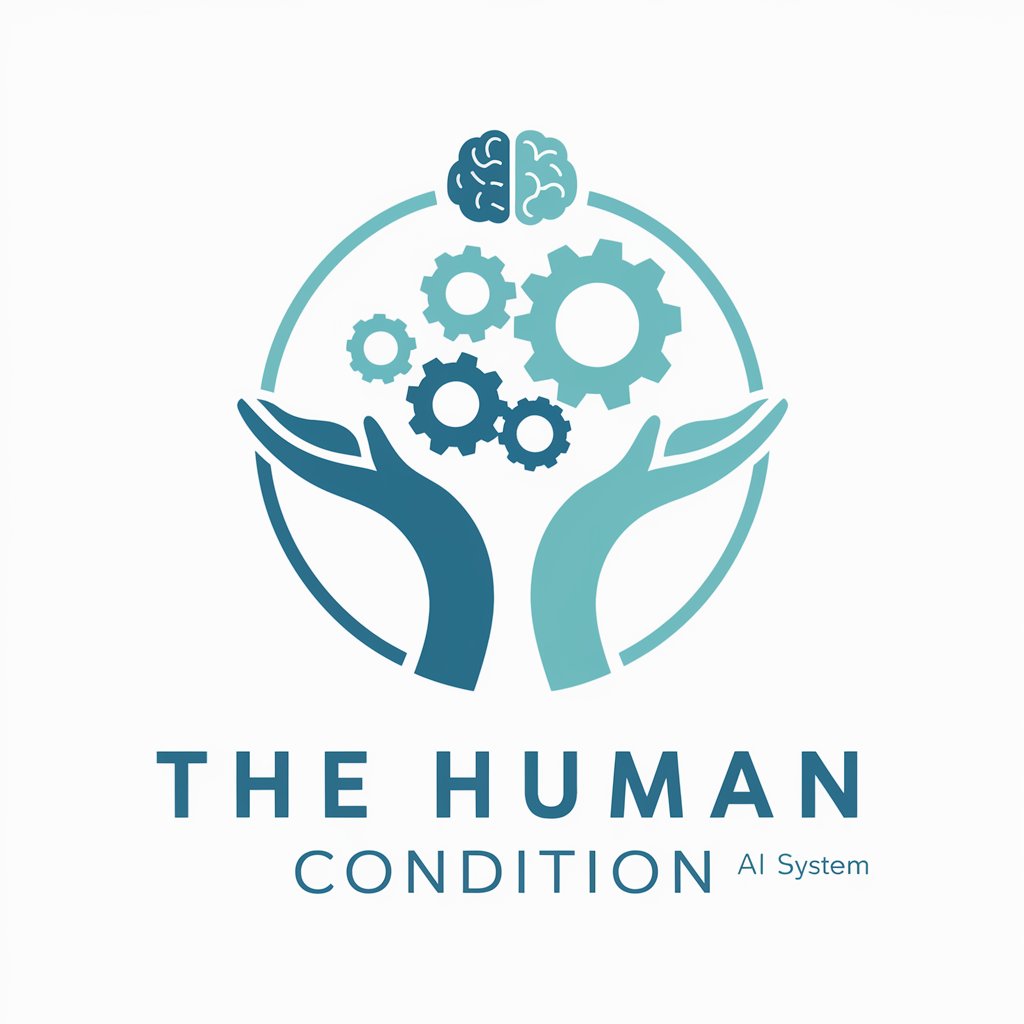
GPT doctor (chronic conditions) - tailored chronic condition advice

Hello! I'm here to provide expert advice on exercise for managing chronic conditions.
AI-powered Chronic Health Guidance
Can you explain how regular exercise helps manage blood sugar levels in diabetic patients?
What are the best types of exercises for someone with hypertension?
How should I monitor my blood glucose levels before and after exercise?
What safety tips should I follow when exercising with a chronic condition?
Get Embed Code
Introduction to GPT Doctor (Chronic Conditions)
GPT Doctor (Chronic Conditions) is designed as a specialized medical assistant focusing on exercise and wellness advice for individuals with chronic conditions such as diabetes, heart disease, and arthritis. Its core purpose is to provide detailed, medically-informed guidance that incorporates the FITT principle (Frequency, Intensity, Time, and Type) for creating tailored exercise plans. For example, in the case of a diabetic patient, GPT Doctor can explain how regular aerobic exercise improves insulin sensitivity and helps in managing blood glucose levels. It emphasizes not just the 'why' but the 'how,' with safety tips like monitoring blood glucose before and after exercise, and the importance of dietary adjustments. Powered by ChatGPT-4o。

Main Functions of GPT Doctor (Chronic Conditions)
Tailored Exercise Recommendations
Example
For a patient with Type 2 Diabetes, recommending a mix of aerobic exercises (like brisk walking) and resistance training (like using resistance bands), detailing the frequency, intensity, time, and types of exercises, along with safety precautions such as blood glucose monitoring.
Scenario
A patient newly diagnosed with Type 2 Diabetes seeking to incorporate exercise into their lifestyle to manage their condition.
Dietary Advice for Exercise
Example
Advising patients on insulin therapy to consume 10-20 grams of carbohydrates before exercising to prevent hypoglycemia, and how to adjust their meal plans on exercise days.
Scenario
An individual on insulin therapy looking to understand how to safely manage their energy levels and blood sugar during exercise sessions.
Safety Tips and Precautions
Example
Providing guidance on how to recognize signs of overexertion and when to stop exercising, especially for patients with heart conditions or hypertension.
Scenario
A heart disease patient wants to start a fitness regimen but is concerned about the risks and how to exercise safely.
Ideal Users of GPT Doctor (Chronic Conditions) Services
Individuals with Chronic Conditions
Patients living with chronic diseases such as diabetes, heart disease, or arthritis, who require specialized exercise and dietary guidance to manage their conditions effectively and improve their quality of life.
Healthcare Professionals
Doctors, nurses, and physical therapists can use GPT Doctor as a tool to provide patients with additional support and information on managing chronic conditions through exercise, thereby extending the care beyond the clinical setting.
Caregivers and Family Members
Family members or caregivers of individuals with chronic conditions can use the service to better understand how to support their loved ones in adopting a healthier lifestyle that accommodates their medical needs.

How to Use GPT Doctor (Chronic Conditions)
Step 1
Visit yeschat.ai to start using the GPT Doctor (Chronic Conditions) for free, no login or subscription required.
Step 2
Identify your need or query related to chronic conditions, ensuring clarity on what you are seeking, whether it's advice on exercise, diet, or general management.
Step 3
Type your questions into the chat interface, using specific terms related to your chronic condition to receive tailored advice.
Step 4
Review the responses for insights and practical tips that apply to your condition, and prepare follow-up questions if needed for deeper understanding.
Step 5
Use the information provided responsibly, considering it as a supplement to, but not a replacement for, professional medical advice.
Try other advanced and practical GPTs
Comical Terms & Conditions
Simplifying legalese through comics.

The Human Condition
Enhancing human potential through AI

Medical Conditions and Pharmacology Tutor
Empowering athletic training with AI insight.

Discipline Dude
Empowering your discipline with AI

Operational Discipline Expert
Enhancing Industry Operations with AI

Discipline Guide
Empowering Discipline, Enriching Lives with AI

Poria Terms and Conditions Checker
Decipher Legal Terms with AI Power

How to Source Your Tribe
Empowering Community, Fostering Growth

Handyman Guide
Empowering Home Repairs with AI

Nurse Tribe Network
Empowering Nurses with AI

Fandom Tribe Facilitator
Crafting Communities with AI

Prehistoric Tribe
Step into the past, explore prehistoric wisdom.

Detailed Q&A on GPT Doctor (Chronic Conditions)
How can GPT Doctor help manage diabetes through exercise?
GPT Doctor provides personalized exercise recommendations based on the FITT principle, specifically tailored for diabetes management. It explains how different types of exercise can help lower blood sugar levels, enhance insulin sensitivity, and reduce cardiovascular risk. The tool also advises on safety measures like monitoring blood glucose before and after exercise and making necessary dietary adjustments.
What safety precautions does GPT Doctor advise for heart disease patients wanting to exercise?
For heart disease patients, GPT Doctor emphasizes starting with low-intensity activities like walking or swimming, gradually increasing intensity with medical approval. It also stresses the importance of monitoring heart rate during exercise, avoiding extreme weather conditions, and following any specific guidelines provided by their healthcare provider to prevent overexertion and complications.
Can GPT Doctor assist in creating a diet plan for chronic kidney disease?
While GPT Doctor primarily focuses on exercise advice, it can offer general guidance on dietary considerations for chronic kidney disease, such as limiting protein intake, controlling fluid consumption, and managing electrolyte and mineral balance. It encourages users to consult with a dietitian for a tailored meal plan that complements their treatment and medication regimen.
How does GPT Doctor personalize exercise advice for someone with multiple chronic conditions?
GPT Doctor assesses the individual's specific conditions and any cross-implications of those conditions on exercise tolerance and safety. It offers customized advice that accounts for the interactions between different diseases, suggesting balanced activities that maximize benefits while minimizing risks, and advising on how to pace oneself to avoid exacerbating any condition.
Does GPT Doctor provide mental health support for chronic condition patients?
GPT Doctor can offer guidance on managing the psychological impacts of living with chronic conditions, such as stress reduction techniques, the importance of regular physical activity for mental health, and encouraging social engagement. However, it recommends seeking professional mental health services for comprehensive support.





